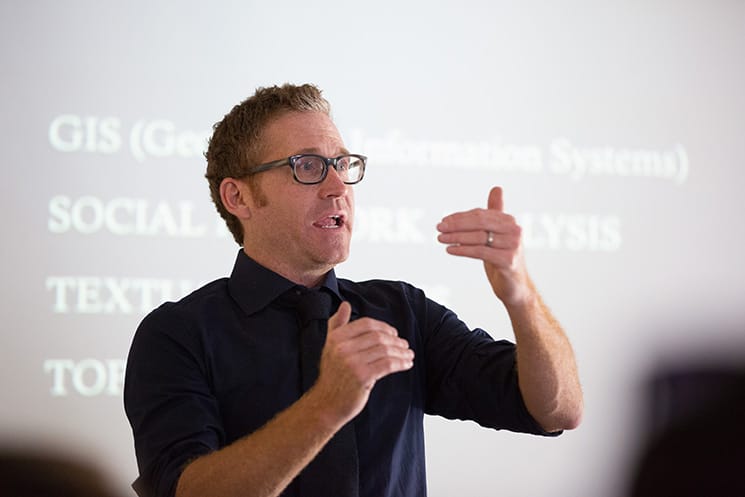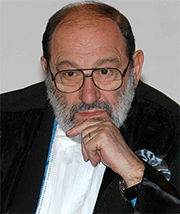Celebrating Umberto Eco: Eric Bulson in the Times Literary Supplement

If literary modernism were a basketball game, Eric Bulson would be the team’s center.
What other position would you give to someone who’s a leading scholar of James Joyce, a figure at the heart of literary modernism?
A professor of English in the School of Arts & Humanities, Bulson has tackled the preeminent Irish writer in varied ways—through critical essays and his book The Cambridge Introduction to James Joyce. He also lent his expertise to writer Alain de Botton when de Botton created a short documentary about Joyce’s life—Bulson was tapped to write the script.
What also distinguishes Bulson from other critics in the field of literature, aside from his work in Joycean studies, is his interest in tracing the writing of great masters in journals, magazines, and newspapers.
His most recent book, this year’s Little Magazine, World Form, examined the origins of modernism in the Little Review, Dial, and similar publications. Important work, Bulson argues, took place in these smaller venues.
In keeping with his opinion that important work takes place in the media’s more ephemeral forms, Bulson himself is a regular voice in the pages the Times Literary Supplement. His most recent piece celebrates the journalism of another master practitioner of the modern meta-novel, Umberto Eco.
In the article “Giving the future to the past” (TLS, March 29), Bulson celebrates the newspaper columns that the bestselling author of The Name of the Rose and other works wrote until his death last year at the age of 83.

“Nothing, it seems, was too high- or lowbrow for Eco, but that, in effect, is what makes this collection such fun to read,” Bulson writes of Eco’s musings on everything from James Bond martinis and Harry Potter to the concept of internet privacy. “He has no desire to try and elevate popular culture or to condemn it. Instead, he has resigned himself to the fact that if this is, indeed, the world we’re going to live in, then we had better find something to laugh at.”
Bulson provides a deft tour of Eco’s occasional pieces that may even move readers to take down The Name of the Rose or The Island of the Day Before and start it again.